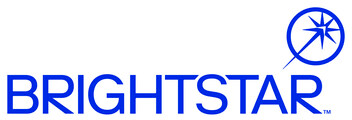
Development Ops Eng IV
- Warszawa, mazowieckie
- Stała
- Pełny etat
- Configure, secure, and maintain Linux servers and environments.
- Monitor system performance, troubleshoot issues, and optimize resource utilization.
- Implement security best practices and ensure systems are up-to-date with patches.
- Design, develop, and maintain automation scripts for provisioning and configuration management.
- Implement continuous integration and delivery pipelines for efficient software deployment.
- Integrate testing and monitoring tools to ensure quality and reliability.
- Utilize Infrastructure as Code principles to manage and version infrastructure configurations.
- Work with tools like Ansible, Terraform, GitHub actions to automate infrastructure provisioning.
- Collaborate with development teams to define infrastructure requirements.
- Manage and optimize cloud-based services and resources (e.g., AWS, Azure, Google Cloud).
- Implement scalable and cost-effective solutions for cloud infrastructure.
- Utilize version control systems like Git to manage and track changes in code and configurations.
- Collaborate with development teams to ensure smooth version control practices.
- Implement monitoring and alerting systems to proactively identify and resolve issues.
- Set up centralized logging and analysis tools to gain insights into system performance.
- Work with security teams to implement security measures and ensure compliance standards.
- Monitor and respond to security incidents promptly.
- Collaborate effectively with cross-functional teams, including developers and operations.
- Maintain comprehensive documentation for systems, processes, and configurations.
- Bachelor's degree in Computer Science, Information Technology, or related field (or equivalent experience).
- Proven experience as a DevOps Engineer with a focus on Linux Administration.
- Strong expertise in Linux operating systems and command-line utilities.
- Experience with automation and configuration management tools (e.g., Ansible, Terraform, GitHub actions).
- Familiarity with cloud platforms such as AWS, Azure, or Google Cloud.
- Proficiency in scripting languages like Bash, Python, or Ruby.
- Understanding of version control systems, preferably Git.
- Knowledge of continuous integration and delivery concepts and tools.
- Familiarity with containerization technologies like Docker and container orchestration platforms like Kubernetes.
- Excellent problem-solving and analytical skills.
- Strong communication and teamwork abilities.